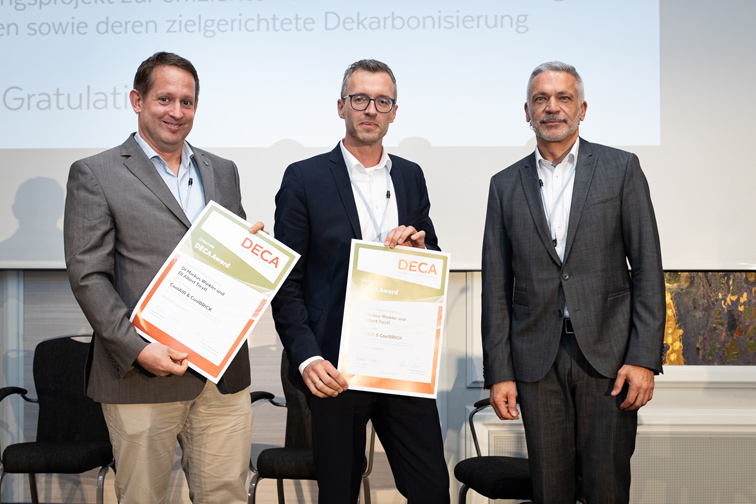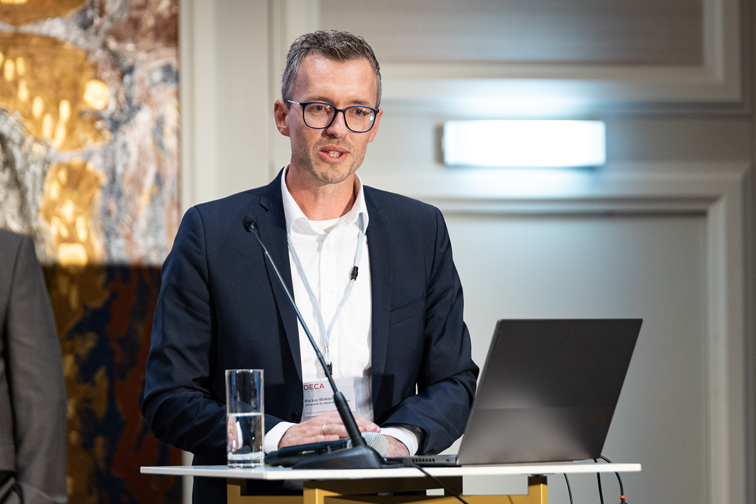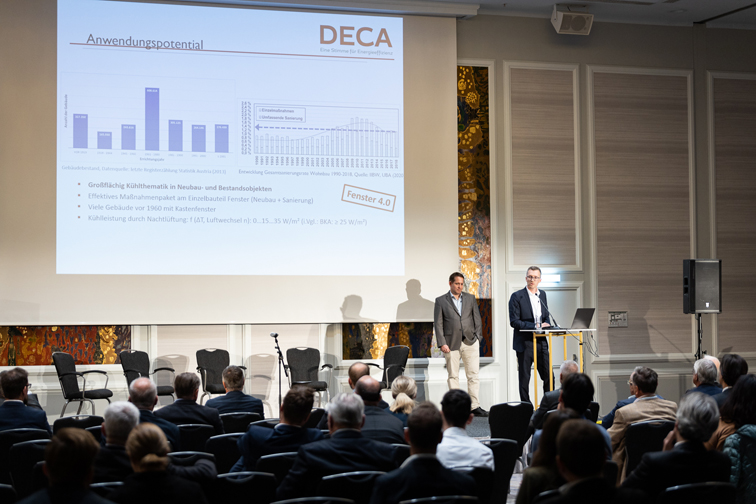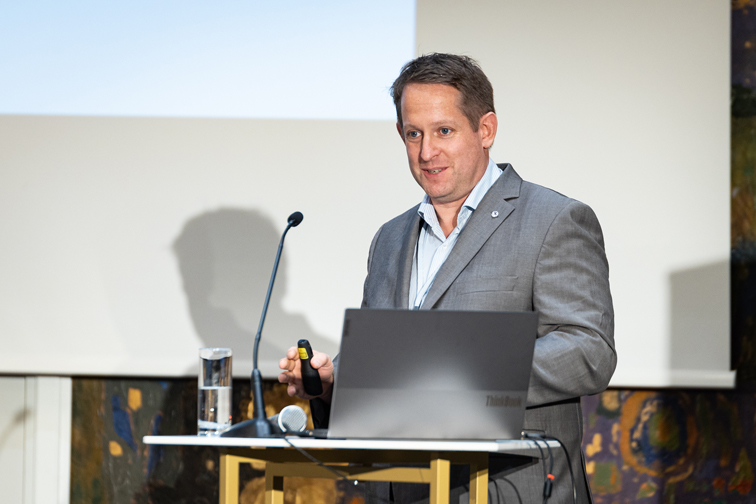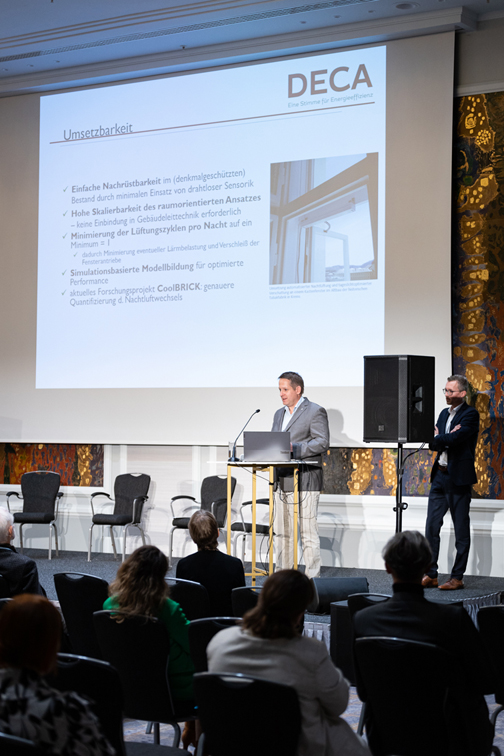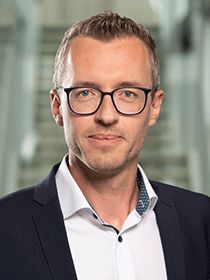As part of the 3rd Energy Efficiency Congress in Vienna, the projects "CoolAIR" as well as "CoolBRICK" of the University for Continuing Education Krems were honored with the DECA Award for Innovations in Energy Efficiency on 5 October 2022. Markus Winkler, Center for Climate Engineering, and Albert Treytl, Center for Distributed Systems and Sensor Networks, were handed over the award on behalf of the project teams.
Research in the field of energy-efficient processes has increased in significance, particularly as a result of climate change and, more recently, the current energy crisis. In this context, the growing demand for cooling in buildings is responsible for more and more electricity consumption and rising CO2 emissions. The prize-winning projects "CoolAIR" and "CoolBRICK" address this very challenge and investigate the potential of passive cooling methods.
Maximizing the potential of night ventilation
The recently completed "CoolAIR" project relies on coordinated natural night ventilation in combination with daylight-optimized shading to improve indoor thermal comfort substantially, especially during transitional and summer periods. For this, a room-autonomous, model-based predictive control system is used. This control system can be implemented in a plug-and-play manner without any need to connect it to a higher-level building control system.
These findings are the basis for the current follow-up project "CoolBRICK", which aims to create a normative foundation to plan the cooling potential resilient night ventilation has in buildings. Therefore, two identical test buildings in Salzburg were digitally simulated and analyzed for temperature development in different scenarios using these digital twins. The results can be additionally validated parallel by real long-term measurements at these test buildings. In this way, intelligent control strategies for automated ventilation and shading quantify and process the cooling potentials for those in charge of planning. The awarded projects involve researchers from the Department for Building and Environment and the Department for Integrated Sensor Systems. They were represented at the award ceremony by Markus Winkler, deputy head of the Center for Climate Engineering, and Albert Treytl, Head of the Center for Distributed Systems and Sensor Networks.
Practical application through outstanding research
In all criteria of the award, innovation, practicability and energy-saving potential, the expert jury judged the submitted concept to be the winner: The findings of the research provide an alternative solution to the overheating of buildings, can be used broadly on the market and, contribute to Austria's climate targets for 2040 with their energy-saving potential. The ease of retrofitting, especially in listed buildings, was just as convincing as the high scalability of the room-oriented approach.
About the DECA Award
DECA represents the interests of Austrian energy service providers and is the contact point for energy efficiency issues and interface to other stakeholders. The DECA Award honors exemplary project implementations in companies and research in the fields of energy efficiency, energy service providers and contracting. Submissions are assessed according to the criteria of innovation, feasibility and energy savings potential. The award has been presented since 2021.
Contact
More information
Tags
